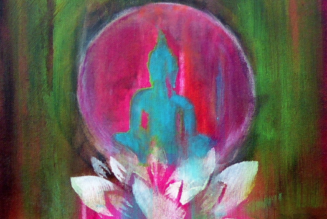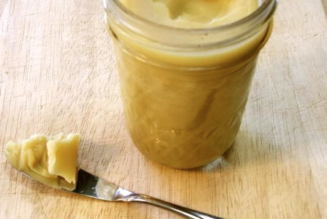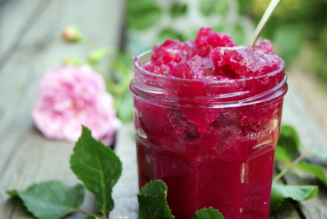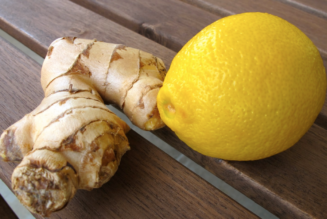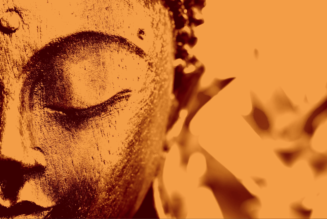Ayurveda Guide For Late Winter Season

Ayurveda explains that whatever there is within the environment is also there within the human body and that such changes within the environment have an influence upon the body. During this time of year, the qualities of nature become excessively cold & excessively dry and therefore influence the body as such.
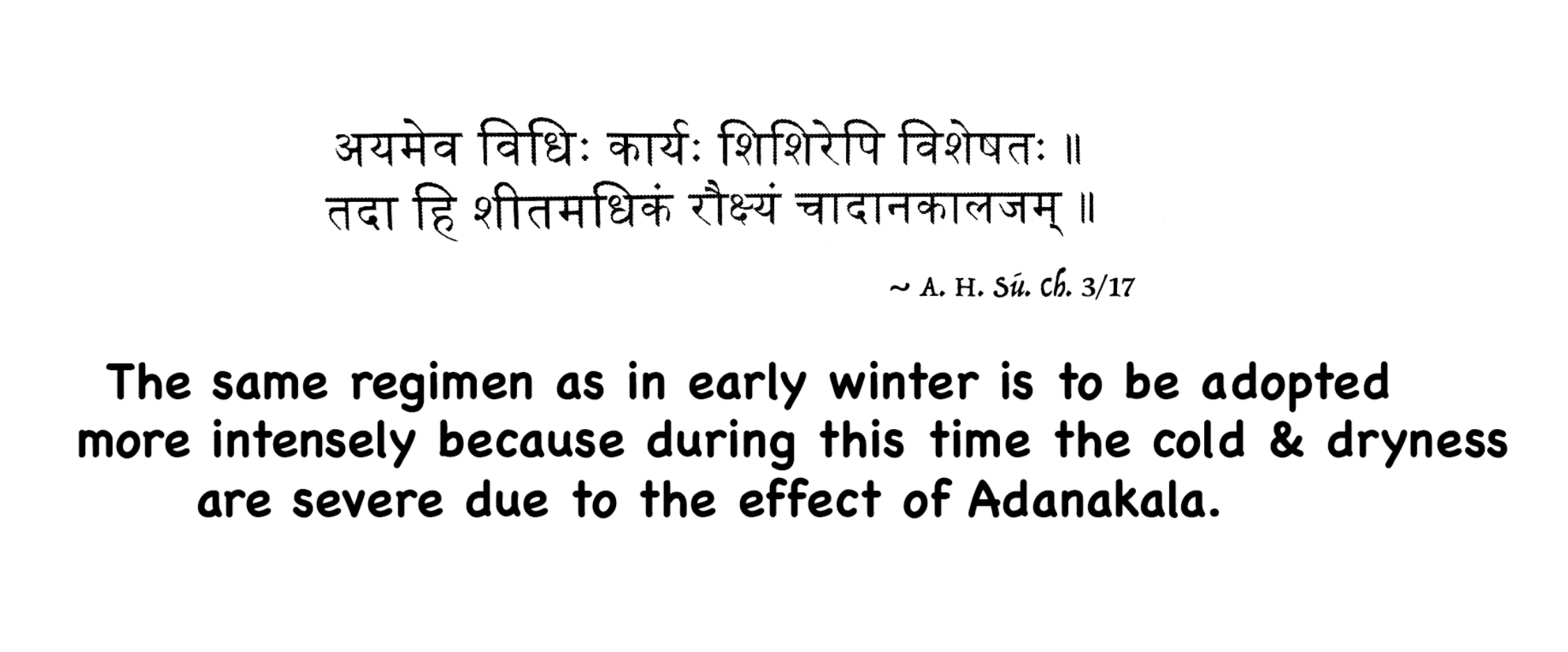
Essentially, keep doing what you’re doing BUT more so …
Meaning, it’s advised to continue the same regimen of early winter during late winter. For example, having meat soup prepared from well-nourished animals with the addition of fat; such as ghee. Having alcoholic drinks made from jaggery and consuming other food made of wheat, black gram, sugarcane and milk products are ideal during winter season.
It’s also recommended to have fresh rice, animal fat and sesame oil during this time of year. Normally it’s advised to have grains which have been stored for up to a year since fresh grains are typically harder to digest. However, during this time of year, the digestive capacity is strong and therefore more readily able to digest heavy qualities such as fresh grain.
The coldness of the atmosphere creates rigidity to the body which is an expression of increased vāta dosha. To help reduce excess rigidity to the body, it’s advised to exercise and to also have a deep-tissue massage with vāta-reducing oils [i.e. warm sesame oil] to help pacify vāta dosha. After having done some exercise and after having had an oil-massage, it’s advised to remove excess oil with certain herbal powders and then take a bath.
It’s important to stay warm during this season. One may consider clothing & blankets made of cotton. For the sake of lightness, silk and wool are also considered. It’s useful to absorb warmth from the sun so exposing the body to sunshine is recommended and for extra coziness it’s ideal to have nice rugs on the floor along with wearing cozy socks to help keep the feet warm.
For the sake of keeping warm, loving embraces from a warm body that’s anointed with the paste of saffron and fumigated with scented herbs helps to eliminate the cold of the season. And finally, it’s advised to keep your home warm whether it be with warm embers, nice fire or central heating.
The Main Difference …
The main difference between early & late winter is:
– early winter: moderately cold & excessively unctuous
– late winter: excessively cold & excessively dry

It’s best to manage kapha now.
If not, kapha tends to become aggravated during Spring!!
Aggravated Kapha During Spring May Cause: allergies, sinus congestion, spring fever.

Therefore, the goal is to prevent excess kapha accumulation.
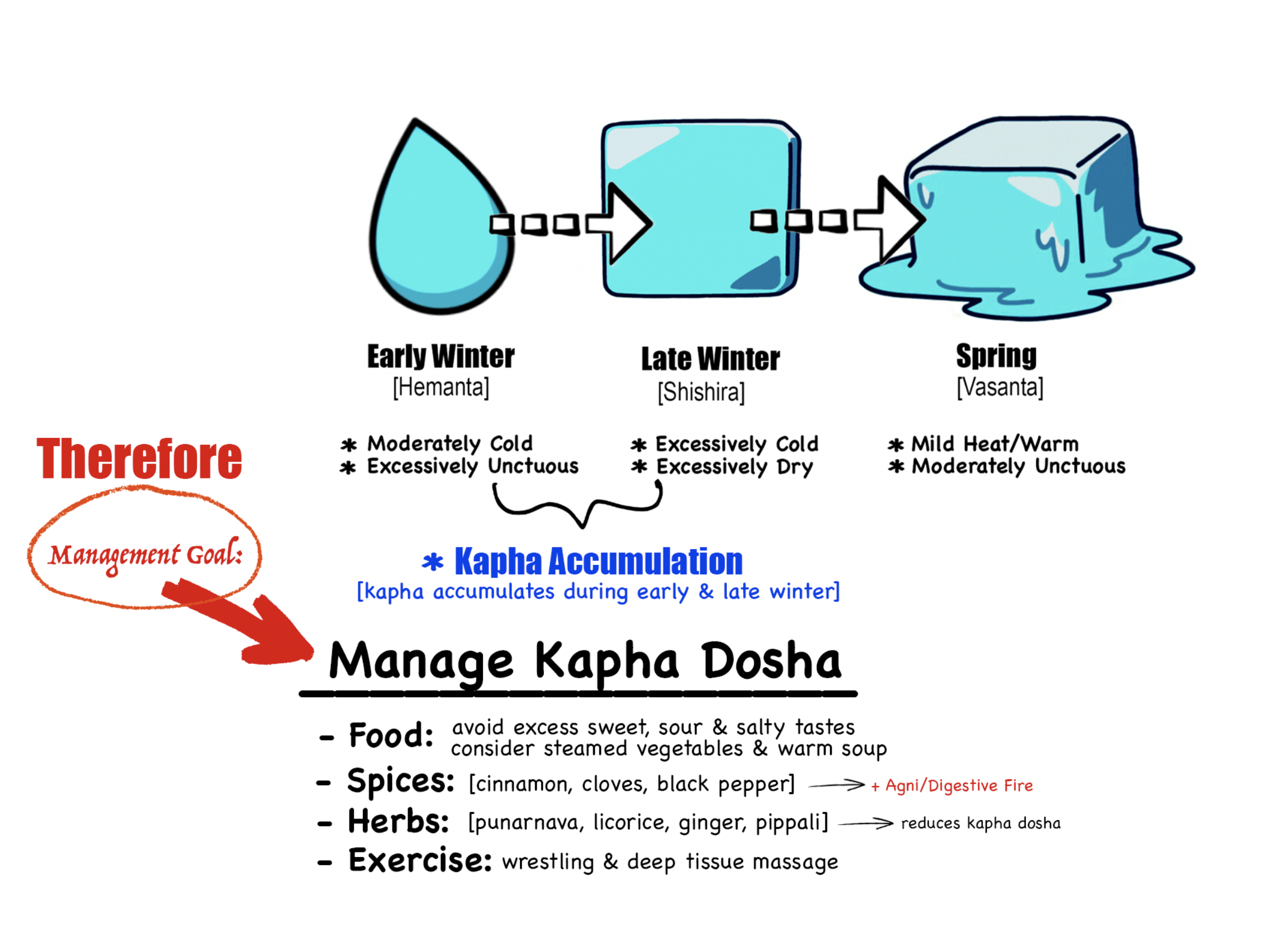
Simple Considerations …
Consider food which tends to reduce kapha dosha while at the same time doesn’t provoke vāta dosha. For example, [unyeasted] wholewheat bread, steamed vegetables and warm soup along with ghee are nourishing considerations. In order to promote optimal digestion, consider adding various spices to your food such as cinnamon, cloves and black pepper; this stimulates Agni ~ the digestive metabolic fire.
Stay Warm With Warming Herbal Teas:
i.e. cinnamon & ginger tea
During this time of year, days become more gloomy and may increase the tendency towards sadness & depression; [i.e. “seasonal affective disorder”]. Therefore, it’s helpful to expose oneself to the warmth of sunlight when possible. To help counter the ‘gloominess of winter’, consider wearing bright, uplifting & warming colors [i.e. red & orange] to help improve one’s state of mind and sense of well-being.
When Kapha Is Provoked During Winter …
Signs and symptoms of provoked kapha tend to include:
– catching a cold
– sinus congestion
– pulmonary congestion with productive cough
– bronchitis
Herbs useful to help pacify kapha dosha:
– punarnavā
– licorice
– ginger
– pippalī
– black pepper
– chitrak
– kutki
IMPORTANT NOTE:
Please seek proper advice from an Āyurvedic professional before taking any herbal product for managing dosha imbalances.
This information is strictly for educational purpose only and not considered medical advice. Always first discuss with your primary care physician before considering any new health regimen.
“Overall in winter, stay calm, warm and happy,
keep good company, and do indoor exercise.
That will make your life happy, healthy, and holy,”
~ Dr. Vasant Lad

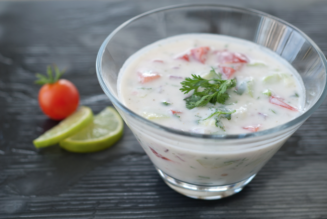
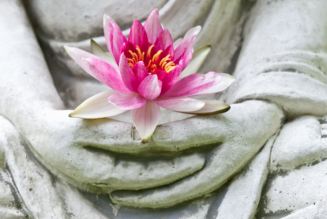
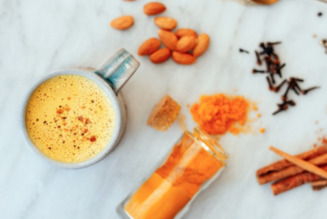
![Female Health: Amenorrhea [cessation of menses] – An Ayurvedic Perspective](https://healthyayurveda.com/wp-content/uploads/2015/07/1.-Amenorhea--327x219.png)
